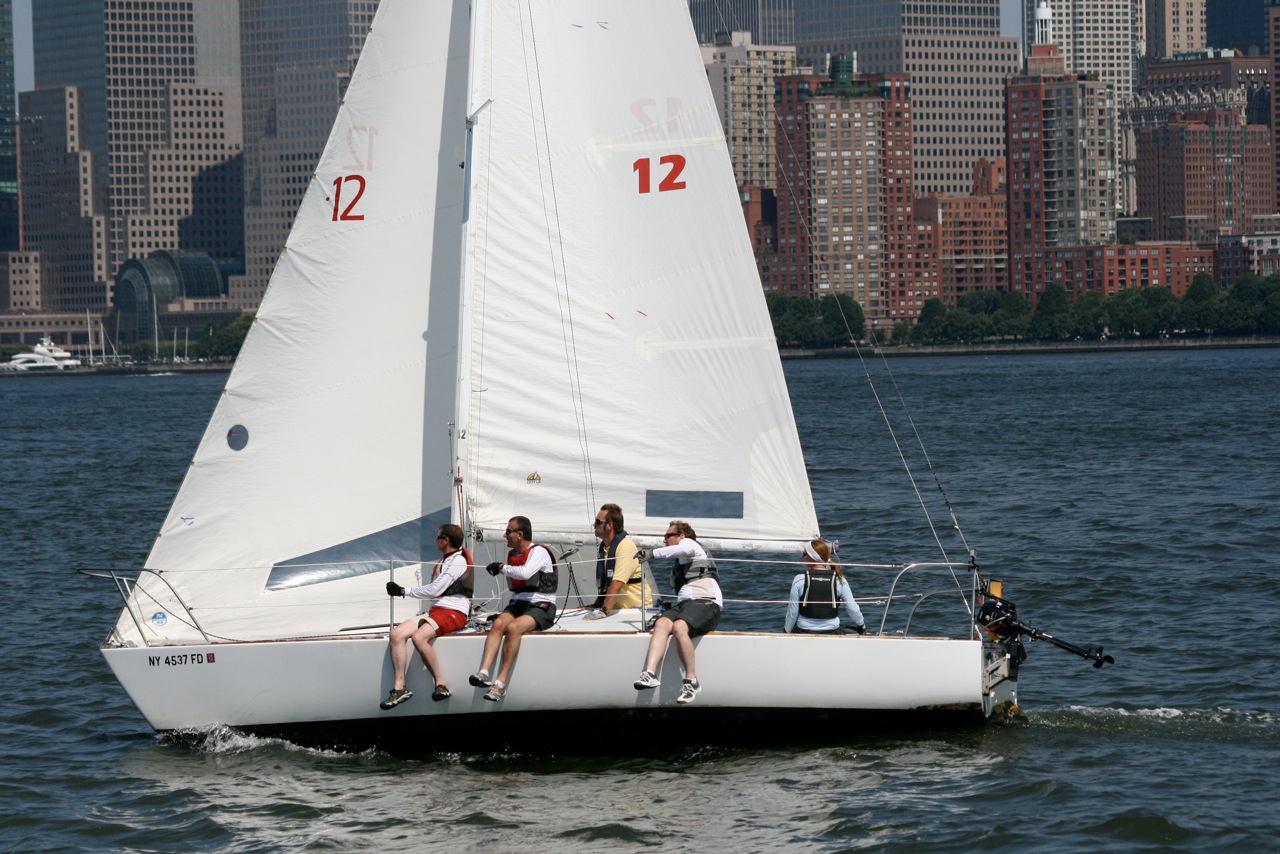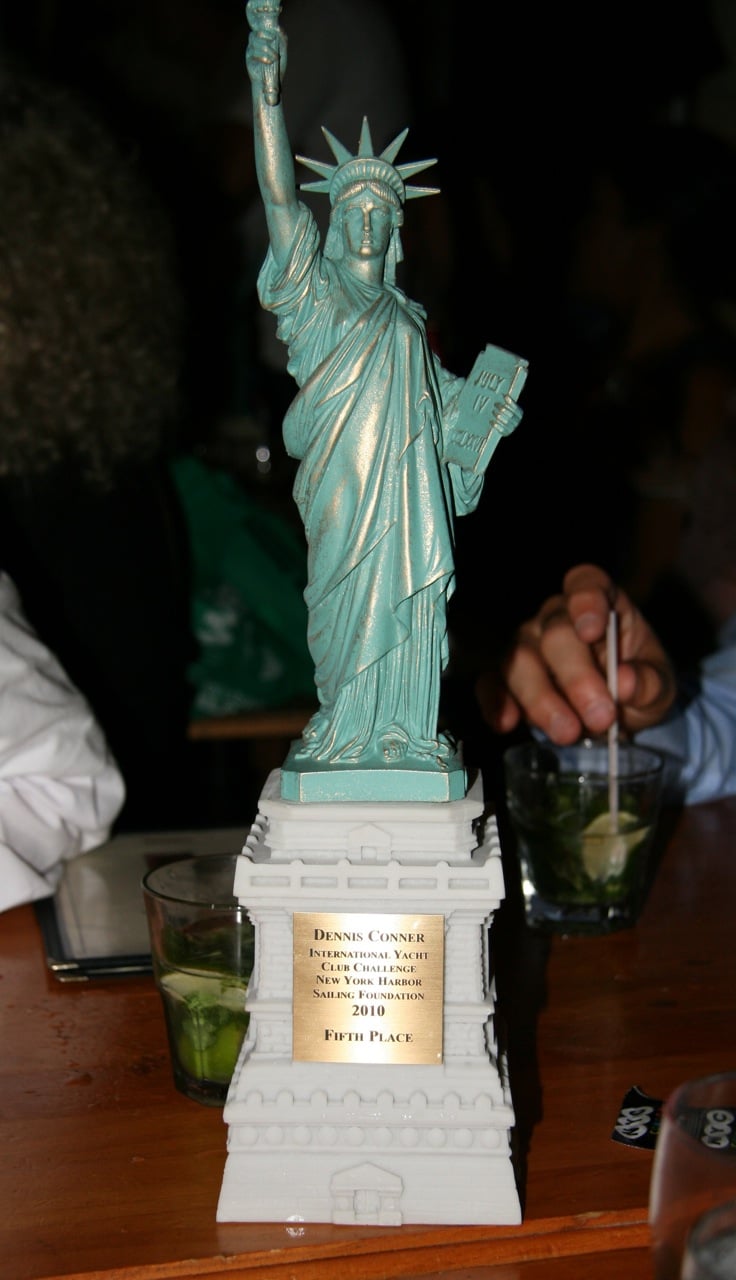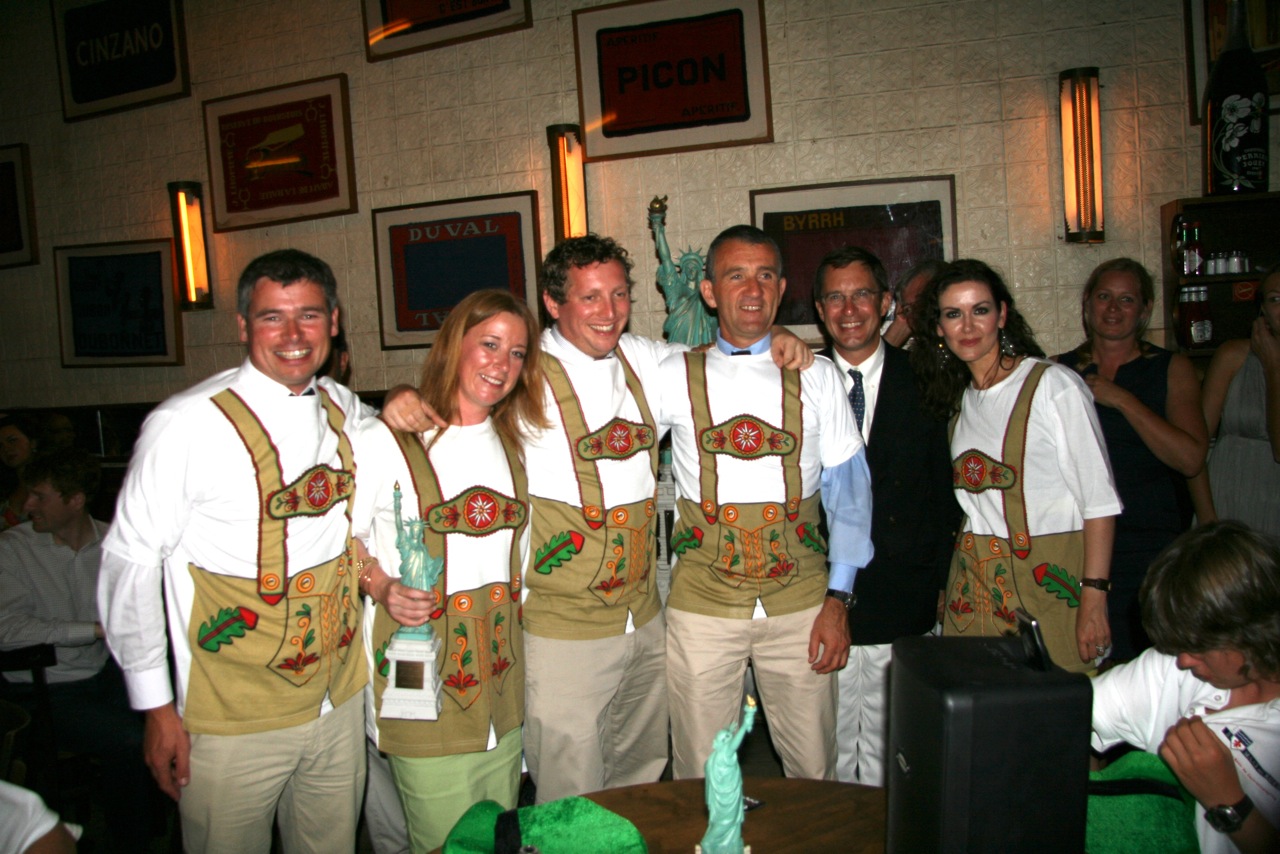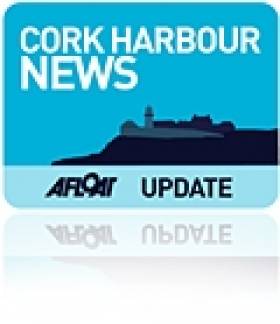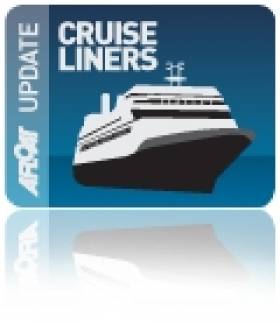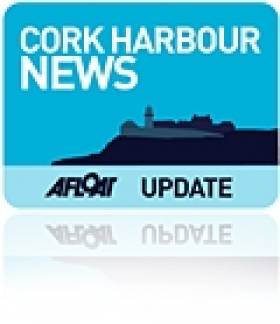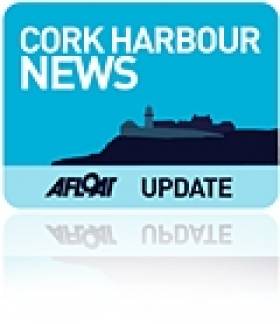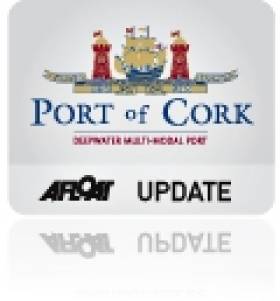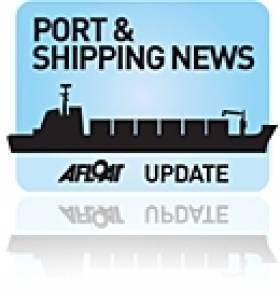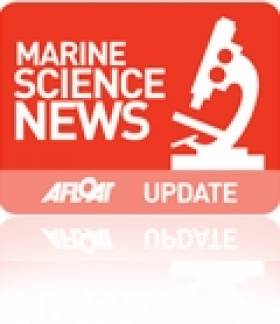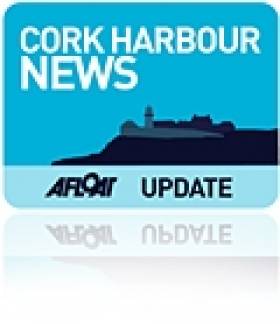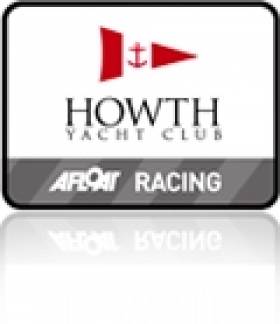Displaying items by tag: Cork Harbour
SCORA Championships Set for Cove SC
The SCORA (South Coast Offshore Racing Association) Championships will take place out of Cove Sailing Club on September 25th/26. From September 24th any competitors travelling to this event and who will be entering the O'Flynn Exhams Solicitors Autumn Regatta the following week will be provided with berthage or moorings free of charge at the Royal Cork Yacht Club right through to the end of the Autumn League.
Wind Turbine Plan for Cork Harbour
A public consultation process is underway.
The turbines would provide a renewable energy source for four major healthcare manufacturing companies based at the pharmaceutical hub of Ringaskiddy.
The four companies, Centocor, DePuy, GlaxoSmithKline and Novartis, are planning to build the turbines on each of their four sites, dotted around the Ringaskiddy peninsula, some 18km southeast of Cork city.
Independence of the Seas Departs Cobh
MV Independence of the Seas, is the largest cruise liner to visit an Irish port this year and Bob Bateman's photos show exactly the scale of the huge liner departing Cobh this evening.
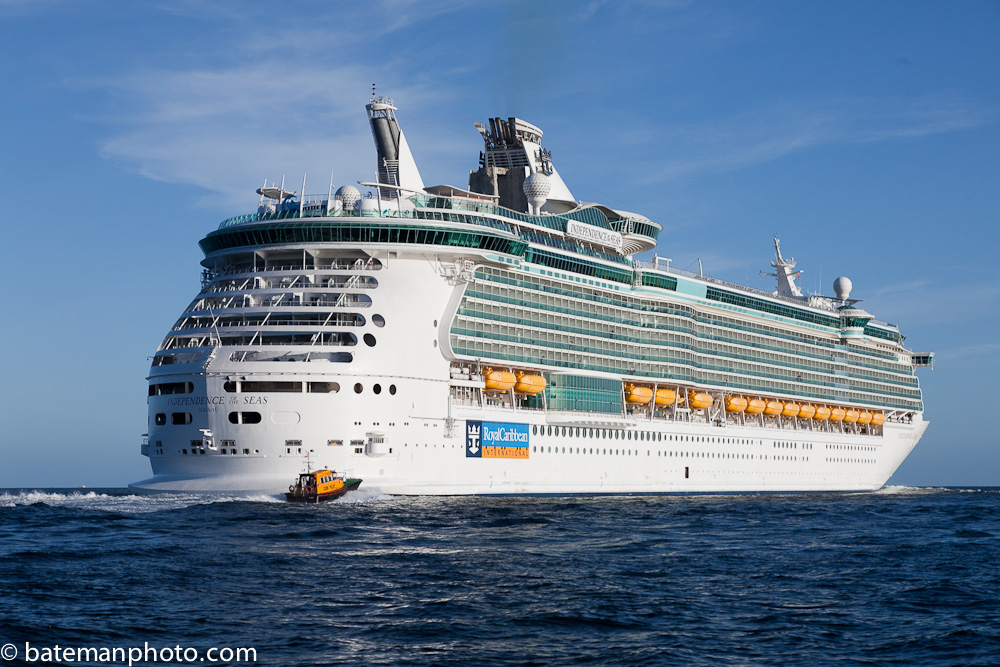
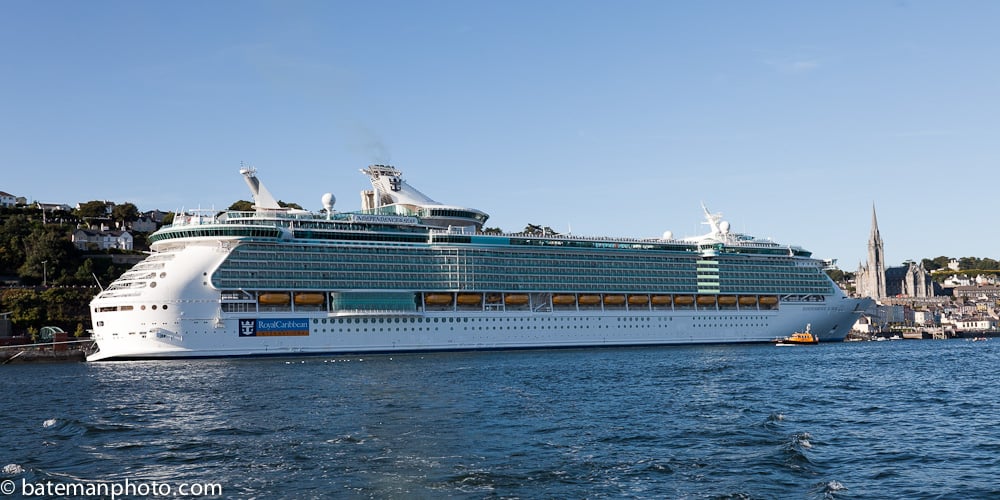
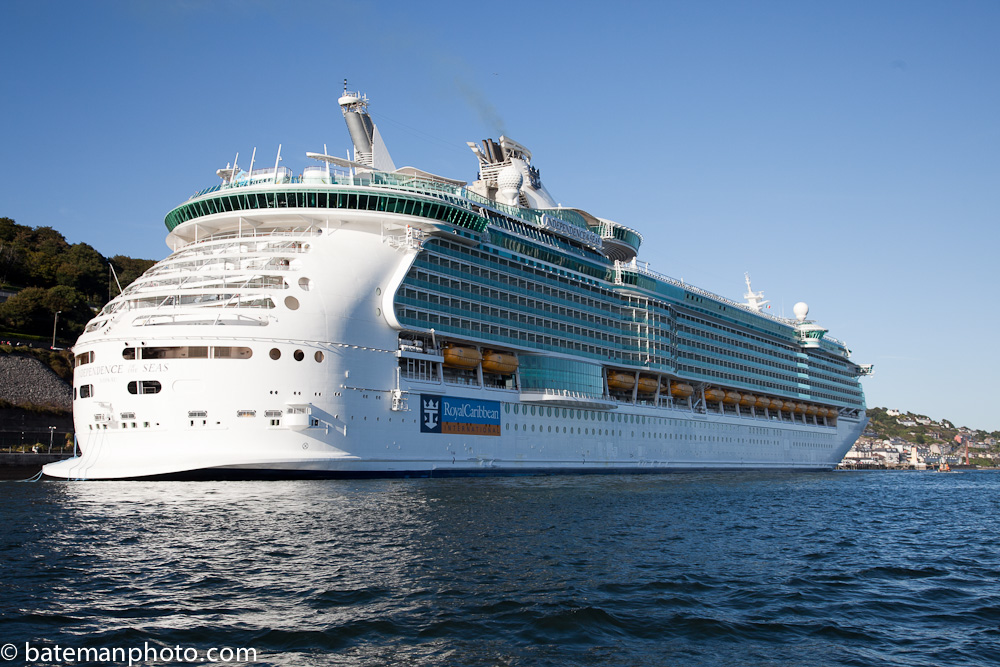
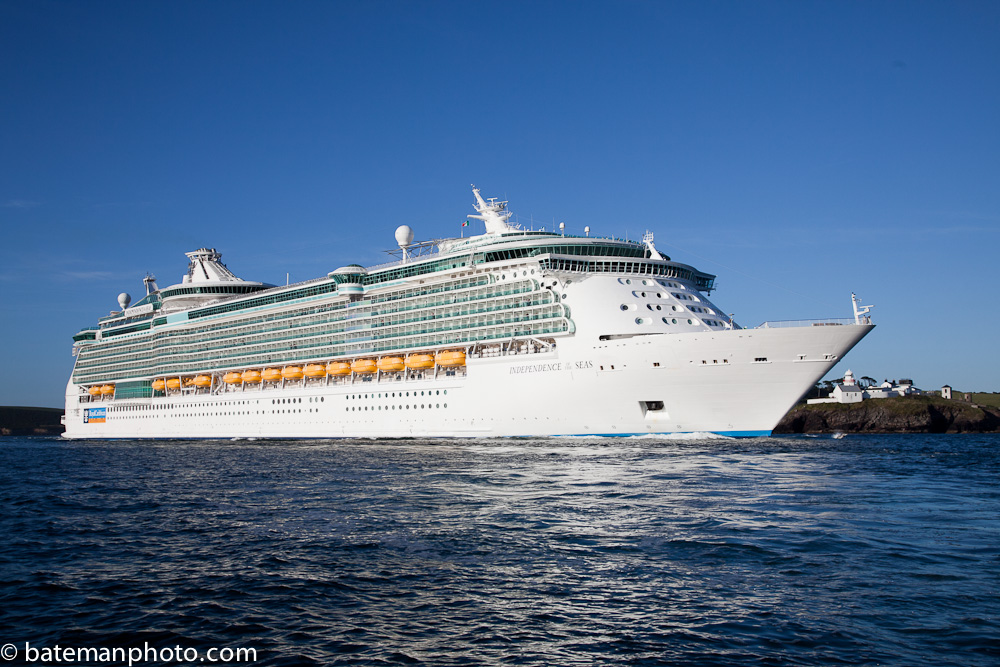
Glasheen Boys School Cruise to Victory
During the summer Glasheen Boys National School were announced as the overall winners of the 2010 Port of Cork Schools Initiative. As overall winners, the 5th class boys were treated to a tour onboard MV Independence of the Seas, the largest cruise liner to visit an Irish port.
While onboard the boys were shown around the huge liner and got to see the amazing flow rider in action on the top deck, as well as the climbing wall, running track, nine hole miniature golf course, the ice skating rink and of course the Alhambra theatre. They were also taken to the exclusive helipad for a photo with the Captain of the Independence of the Seas. Here the boys got a bird's eye view of the Cobh and the lower harbour.
Over 50 schools in and around Cork were invited to take part in the Port of Cork Schools Initiative which was themed 'Cork Harbour through Your Eyes – commercial, leisure and environment – Working in Harmony'. All submitted projects were put on public display in the reception area of Customs House.
Commenting on the school projects and the trip onboard the Independence of the Seas, Captain Pat Murphy, Port of Cork Community Liaison Officer said; 'Congratulations to Glasheen Boys National Schools for their excellent submission, it is clear they went to a lot of effort creating their project and we were delighted to bring them onboard the Independence of the Seas today.'
He continued: 'The Port of Cork will run the Schools Initiative again next year and we hope to encourage even more schools around Cork to take part. This is a great way of educating school children on the history of the Port and Cork Harbour.'
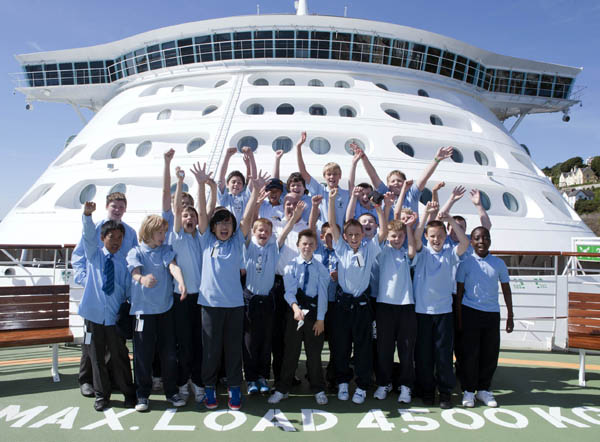
Seaplane Service Makes Cork Harbour Test Flight
Port of Cork Opens its Doors for Heritage Day
On Saturday 28th August 2010, the Port of Cork will open its doors to the public from 11am until 4pm as part of Cork Heritage Day. The spectacular rooms of Custom House will be open to the public offering visitors the opportunity to view the impressive boardroom and committee room as well as the fine collection of maritime artwork owned by the Port of Cork Company.
With the new Port of Cork City Marina in place, the Port of Cork is encouraging boat owners to use the facility for Cork Heritage Day.
Commercial Manager Michael McCarthy said; 'The Pork of Cork are delighted to open Custom House once again to the public and what better way to arrive in the city than by water. We are encouraging all boat owners if they are planning on visiting the city for Heritage Day to use the Port of Cork City Marina, which allows excellent access to all the city attractions.'
The Port of Cork City Marina is free to use during the day, however overnight charges do apply. It is advisable to pre-book a berth if planning on visiting the city by boat for Cork Heritage Day. To request a berth please visit www.portofcork.ie
Irish Shipping Trade Volumes Return to Growth
The midyear data in particular points towards trade volume growth in three of the principal freight segments; most significantly in lift-on/ lift-off (lo/lo) export trades which we estimate grew by 5%. Roll-on/Roll-off export traffic was also up 5% per cent on an all island basis. Dry bulk volumes through ROI ports increased by 15% for the first six months compared to the same period last year. Shipments in April this year saw the strongest monthly volume of bulk cargoes in over 2 years.
Roll-on/roll-off (ro/ro) traffic on an all-Island basis continued to make a steady recovery with an increase of 2%, up to 771,585units for the first half of 2010. The ro/ro segment is largely weighted towards services to and from the UK which remains our largest trading partner.
The most significant change in volume has been in the main lo/lo trades. Overall total volume including export and imports fell only marginally by 1% to June with 517,552 units being handled. However this compares to a -24% reduction for the same periods last year.
A key factor in the positive upward movement has been the continued strong performance of export volumes which as noted was up 5% year on year. Import volumes were down 2% which is largely as a result of continued weak domestic demand. Nonetheless the rate of decline in import volumes has eased sharply which is possibly also offset by demand for industrial imports used as inputs for the merchandise export trades.
The sharp fall in import units over the last 24 months has inversely created a problem for export companies as there is now reduced supply of export quality containers available in Ireland. As a result shipping lines have to reposition empty containers from the UK and Continent which in turn adds to the overall cost of the export box.
Dry bulk (Bulk carrier) trades recovered some of the record volume losses seen in 2009 with a strong 15% increase between January and June. Part of this recovery is attributed to stronger domestic demand for grains, fertilizers and other agricultural products, while improved global demand for steel and other ore aggregates also pushed up volume throughput.
Breakbulk volumes through ROI ports linked to construction inventories such as steel and timber continued to decline by 11%, which is half the recorded figure for 2009. Nonetheless volume activity in this segment remains at a historically low level.
Liquid bulk (Tanker) volumes such as oil fell by 4%, with lower transshipment storage for the US market and other seasonal factors impacting on demand. The outlook for continued short term volume recovery remains largely contingent on the external recovery in the global economy.
Students Take to the High Seas
Imagine being able to plan, design and carry out your own scientific survey into the seas around us. Last week research students from across Europe were given just such an opportunity when they joined scientists onboard the Irish national research vessel RV Celtic Voyager in waters off Cork.
This unique opportunity for students to gain practical experience in carrying out multidisciplinary marine scientific research is part of the European Framework 7 project EUROFLEETS, and was designed, developed and co-funded by the Marine Institute, Ireland.
Over the course of six days, between the 14th and 19th August, 20 European postgraduate students learned the skills necessary to map the seabed, identify the animals and plants living there, and investigate the local and oceanic currents that influence them. Training focused specifically on operational research and included the deployment of equipment and instrumentation, sample recovery and processing, and data acquisition. Other modules investigated designing and planning a survey, operations and capabilities of research vessels and safety at sea.
Event to Showcase Cork Harbour
Cork Harbour Open Day will take place on Saturday 4th September 2010 and already there are a number of free events planned to take place around the harbour.
To name but a few, Cork City will host the World Rescue Challenge on the Port of Cork's North Custom House Quay, Cobh will host the start of the annual Cobh to Blackrock Sailing race, while in Crosshaven there will be farmers markets, rowing championships and the RNLI Station will be open to the public.
It is expected that many more events will be announced in the coming days. For a full programme please visit www.corkharbour.ie
Aimed at embracing what Cork Harbour has to offer, the Cork Harbour Open Day aims to raise awareness of the different activities available for people in the harbour both on and off the water.
The idea for a Harbour Open Day emerged from discussions between various stakeholders involved in the development and implementation of the Integrated Strategy for the Harbour. A group comprising representatives from UCC, City and County Councils and the Port of Cork set about working together to engage users of the Harbour and to organise the Open Day.
Cork Harbour is the second largest natural harbour in the world, next to Sydney Harbour, offering beautiful locations for enjoying the outdoors, dramatic coastlines, and excellent leisure facilities.
To get involved in Cork Harbour Open Day or to organise an event on the day, please visit www.corkharbour.ie or contact Sara Dymond at [email protected] or 021-4625375.
Irish Teams Third and Fifth in New York
After 3 very intense days of international competition at the Dennis Connor International Yacht Club Challenge, the Irish teams consisting of Royal Cork Yacht Club finished 3rd, Howth Yacht club finished 5th overall beating some very talented opposition including the two local Manhattan Yacht Club teams.
The event was sailed in a fleet of J24's and the RCYC boat was skippered by Stefan Hyde and the Howth Boat by Emma McDonald.
In fact if it was not for a penalty after a collision in race 4 (Under Regatta rules, if a collision occurs, both boats have to do turns no matter who is in the right / wrong) and the cancellation of race 7 on the last beat due to a approaching thunderstorm - podium positions for both teams could have beckoned.
The regatta was sailed in the very busy waters of the Hudson river in New York City which along with the challenges of avoiding commercial traffic, some of the strongest currents that the crew have ever experienced had to be negotiated in varied winds from 5knts on the opening day to 30knts plus during approaching thunderstorms on the final day. The 3rd Irish team; Wexford Harbour Yacht and Tennis Club finished in 10th place.
The event was won by the team from Switzerland - Societe Nautique Rolloise followed one point behind by USA - Southern Yacht Club and then a fantastic 3rd place by the Irish team from Royal Cork skippered by Stefan Hyde.
It is tradition on presentation night that each team presents to the team that finishes behind them in the final results a humourous prize.
4th place Austrian team presented the HYC team with "Lederhosen".
Howth Yacht Club also presented Commodore Michael Fortenbaugh of Manhattan Sailing Club and Dennis Connor (Americas Cup Hero) with HYC Burgees.
A fantastic event in a wonderful city that certainly promoted international goodwill through friendly competition.
